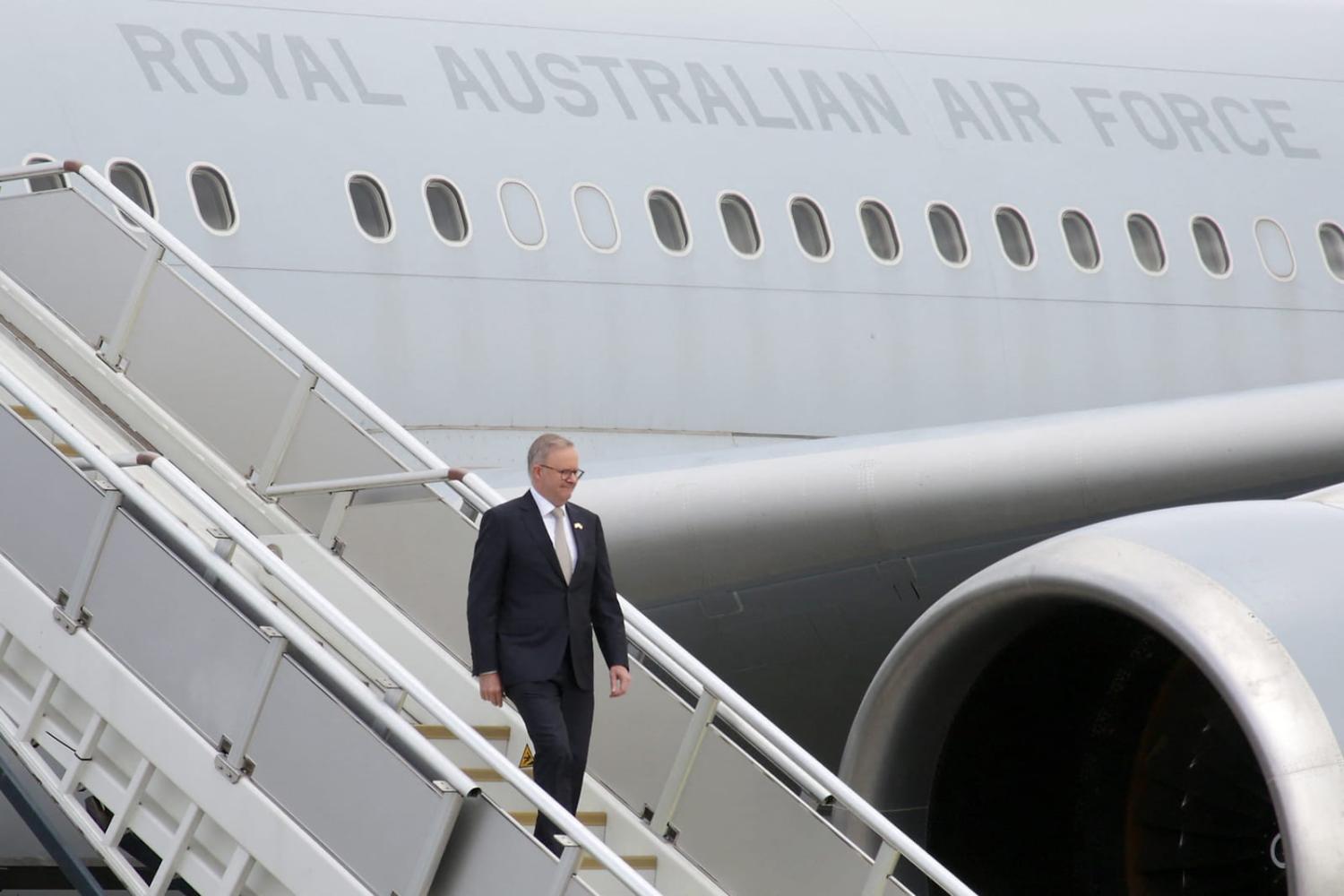Nick Bryant, former BBC correspondent and now Sydney resident, made a case this week against “the dreary parochialism” too often evident in Australian politics – the latest exhibit being complaints about “Airbus Albo” as Prime Minister Anthony Albanese prepares to jet to APEC in San Francisco.
“To moan about excessive travel is to deny Australia’s consequentiality,” Bryant wrote in the Sydney Morning Herald, “and speaks of a self-belittling streak that has held the country back since the turn of the 21st century.”
Maybe. But I reckon this is only part of the story.
Certainly, there is a political connivance, given the long history of poking fun at prime ministerial travel, as other commentators such as Nine’s Tony Wright have pointed out. And to reinforce the point, on Wednesday, Opposition leader Peter Dutton speciously declared “the prime minister should stay here” in the wake of a High Court ruling that struck down the power to hold migrants in indefinite detention, as if to imply Albanese should remain at home to stand watch under new monitoring arrangements.
It is also true that the summit season has grown exponentially in recent decades, and with it an expectation that business must be done at a leaders-level. Australia has a seat at many a table that didn’t even exist at the turn of the century. But the PM’s time is valuable. Representing Australia might be an essential part of the job, yet it’s far from the only part.
Ask the question like an economist might: are the demands of the diplomatic circuit for leaders delivering value?
APEC. G20. East Asia Summit. The Quad. Pacific Islands Forum. A guest spot at NATO. Climate negotiations. The United Nations leaders’ week. Commonwealth Heads of Government Meeting. All before getting to Beijing, Washington, Jakarta, Tokyo, Wellington.
James Curran made a valiant attempt at the weekend to defend APEC as an ongoing concern. But his Australian Financial Review article was a history lesson about Australia’s role in its creation, not a manifesto for future work. And Curran admitted that with Joe Biden and Xi Jinping holding talks on the sidelines in San Francisco, “the meeting of superpowers may make it doubly hard for Albanese to make his presence felt in the Golden City”.
This goes to a point often made in defence of leaders-level multilateral meetings, that the side hustle is the real value as a chance to do business. But if diplomatic speed-dating has become the purpose, this only diminishes the point of the forums themselves, which often have overlapping memberships and agendas.
Bureaucracies like to see leaders involved because it focuses government attention. And leaders themselves like to be involved because they get attention. But that’s valuable only when there is an outcome. Otherwise, the need for a “deliverable” can sound like hollow spin.
The trap is also one of expectations. Leaders want to meet leaders. If a leader doesn’t attend, is that a diplomatic snub? It’s an easy story to tell. The Opposition leapt to criticise Albanese after reports earlier this year that he would skip the NATO summit.
Also remember that Albanese’s trip to Washington in October was a direct consequence of Biden pulling out of a Quad summit in Sydney in May. Only Albanese was already scheduled to go to the United States in November for APEC. And when the White House couldn’t align the schedules, Australia subsequently risked offence to the Americans had Albanese declined the offer of a state dinner on the basis that he’d be flying across the Pacific twice in as many weeks.
In the end, was this muddle really an effective outcome?
Scheduling busy people will always be a challenge. None of this should be read as a call for Australia to shrink inwards. But if the Opposition really wants to score a point, it should ask whether the contemporary demands of shuttle diplomacy are a good use of any leader’s time.

